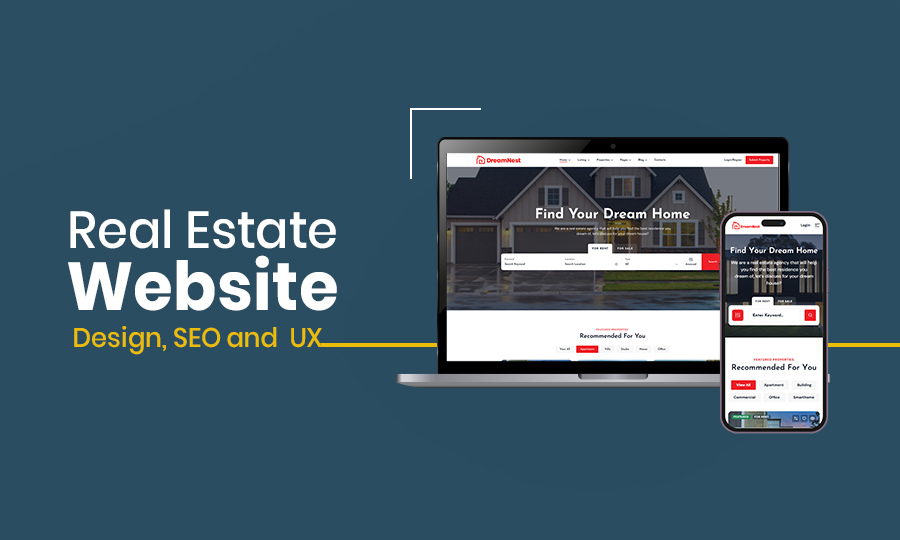People nowadays search for homes and properties online to buy. 43% buyers initiate the entire process to buy a home by searching online. So, having a website is quite necessary for a real estate business. It’s essential to help you reach different categories of audiences and also facilitate your clients access to necessary information hassle-free. Having your own website is not enough. A professional web design for realtors is necessary to ensure it offers timeless elegance.
Make sure it’s optimized perfectly to stand out in the competitive online space. Here, an eye-catching real estate website design plays an important role. While most realtors prefer to communicate with prospective buyers in several ways like emails, messaging, calls, and more. Websites act as the starting point of the entire customer journey.
You website should be fully optimized, accessible, responsive, and has a custom website design, which reflects the reliability and credibility of any real estate professionals and companies. According to data, approximately 73% of real estate sales agents and 64% of real estate professionals have a full-fledged business website. It reflects how websites are necessary for this sector to increase the growth of more business.
In this post, we will discuss a real estate website in terms of its design, user experience (UX), and search engine optimization (SEO). Let’s explore now.
What is Web Design for Realtors?
Website design for realtors is a process that is related to creating and also optimization of websites tailored exclusively for real estate agents. It emphasizes mainly real estate agent profiles, showcasing property listings, contact options, vast library and market insights in a user-friendly and visually appealing manner.
Whether it’s fast loading times, responsive layouts, integrated MLS/IDX integration listings, or intuitive navigation, an effective and meaningful realtor web design includes everything. These IDX integration is necessary for an improved user experience and also new lead generation.
It’s a combination of numerous branding elements and a call to action that show the identity of a real estate agent and brokers and also their market focus. A perfectly designed and custom or semi custom real estate website lures potential buyers and sellers, develops credibility, and boosts business growth in a fully competitive market.
Importance of Real Estate Website Design
A real estate website serves as the backbone of the business. It’s pivotal in creating a first impression for sellers, buyers, or investors. It’s necessary for building trust, and credibility, and thus makes you stand apart from the competition. Let’s understand several other reasons why a good website design is essential for your real estate business.
- User experience is one of the major advantages of a good website design, which enables website visitors to navigate the site easily. Whether they seek to find property listings, pricing, location, or amenities, they can gather every detail quickly.
- Be it fast loading speeds, mobile responsiveness, or intuitive and saved search options, many features of a good website design ensure a higher engagement rate. These minimize the bounce rate as well.
- A perfectly designed real estate website boasts features such as virtual tours, high resolution property images, clean layouts, interactive maps, and more. These are essential to make your listing more attractive and also super easy to grasp.
- A sleek and modern design is a reflection of a customer-focused and tech-savvy approach.
- A full-proof website design is necessary for improved search engine visibility. Whether it’s optimized images, clean code, or structured content, these boost your chance of ranking high in search results. It also boosts more organic traffic to your website.
- Your website works as an important tool for lead generation with newsletter sign-ups, chatbots, contact forms, CRM systems, and more, apart from other tools for the same. These are useful to capture more leads and thus help you nurture relationships most effectively.
- A website works 24/7 to reflect your brand, showcase your listings, and then convert website visitors into clients. It’s necessary to invest in a high-end real estate website design. It is necessary to build trust and boost user engagement, which increases sales.
Best practices of Real Estate Website Must-Haves: Design, SEO, and UX
Creating a perfect real estate website needs the best combination of search engine optimization, attractive design, user-friendly experience, etc., to lure, engage, and convert visitors. Let’s explore several important practices across some major areas like SEO, design, and UX.
Stellar Design That Sells
- Visual Appeal and Branding
First impressions are something that matters a lot in real estate. You can achieve this by including the high-end and high contrast visuals;
- Drone footage
- Professional images
- 3D virtual tours, etc.
These can definitely improve listing dramatically.
Powerful Branding Matters
The modern aesthetic should be complemented with powerful branding. And you can do it by including the following important things;
- Selected color palette
- Consistent logo
- Readable typography, and more across multiple website or landing pages
These indeed create a professional and cohesive identity.
Make sure the design is uncluttered and clean. A minimalist approach allows users to focus on what matters the most. The fact can’t be denied that a mobile-first and responsive design is indeed non-negotiable. With the number of browsing listings on mobile devices, your website needs to appear and function smoothly across multiple devices.
- Intuitive Navigation
A well-designed and highly effective real estate website makes it convenient for providing visitors exactly what they are looking for. Logical and clear menus categorize properties in the following ways;
- Type
- Location
- Price to improve usability
Make sure contact details are highly accessible, which is perfectly in the footer or header.
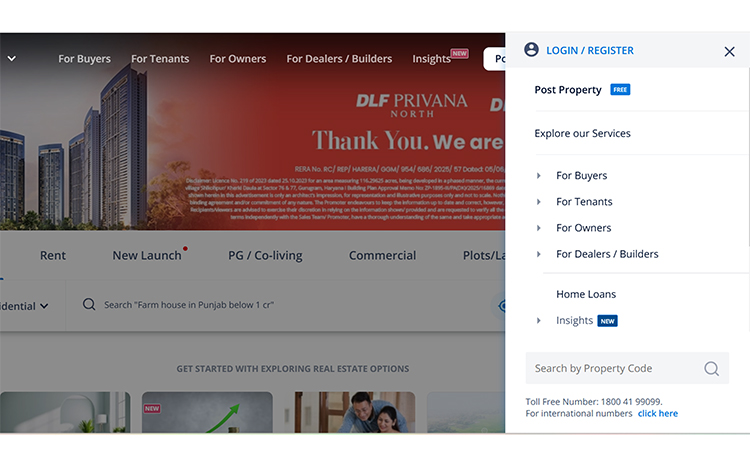
Therefore, your potential clients can reach out easily without hunting. You can place strong calls-to-action (CTAs) with the right strategy, which is indeed highly important and boosts user engagement.
Key Design Elements for Real Estate
Many features are necessary for real estate websites. These features mainly include include;
- Interactive maps showing property locations
- Quality property galleries with Zoom
- Neighborhood guides
- Slideshow capabilities, and more with local schools and attractions.
Real estate agent profiles with bios and images create trust, while client reviews or testimonials highlighted add higher credibility.
Dominating Search with SEO
- Keyword Research for Real Estate
Keyword research is highly important for an impeccable SEO strategy, which helps you maximize your reach among your target audience. A professional SEO company suggests you to always emphasize local SEO with keywords like “Apartment for Sale in New York” or “Office Space for Sale in Boston”.
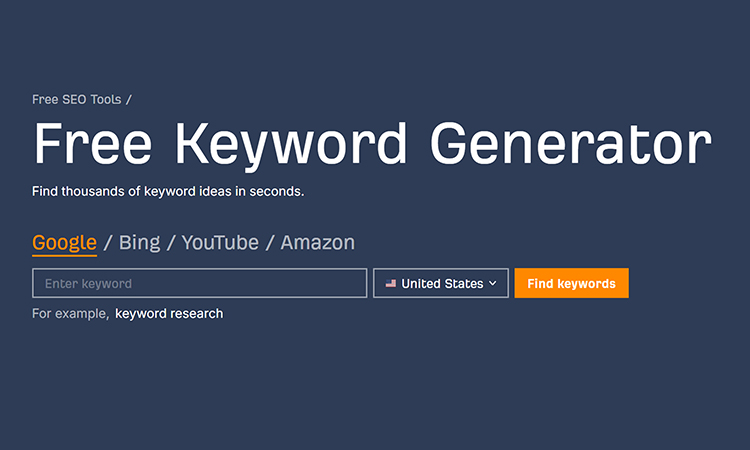
Many long-tail keywords such as “Affordable Apartments with Garden in Los Angeles” claim targeted searches. You need to be familiar with buyer intent in terms of whether they wish to browse casually or are ready to purchase your homes. It helps you craft the right content.
- On-Page SEO Essentials
The next important thing you can do is to optimize your meta titles and also descriptions. Be it H1, H2, or H3, you can use many header tags to organize content and thus boost readability for both search engines and users.
Besides, you can add relevant content and top-quality information including local market trends, detailed property descriptions, home-buying tips, and more. Your team should never ignore images, which optimize property with alt text that indeed describes those pictures for higher accessibility and indexing.
Title Tags
Title tags are one of the crucial factors in on-page SEO as they determine every clickable headline that appears in search results. It’s placed within the HTML of a webpage and helps both users and search engines understand the web content. Be it improving search visibility or increasing click-through rates, title tags play an important role in doing everything.
While writing title tags, you can consider the following important things;
- Use your primary keyword in title tags
- The length should be within 60 characters
- It should be descriptive and eye-catchy
- If possible include your brand name
- Create a unique title for every page
When it comes to meta description, it summarizes the web content and is visible below the page title in search results. It lets users have a complete overview of the page content and thus has a major influence on click-through rates. Make sure you write a compelling meta description for every web page on the following ways;
- Make sure your meta description is within 150 to 160 characters.
- It should include your primary keyword
- It should match the search intent
- Use active voice
Why On-Page SEO Matters
On-page SEO is directly related to the success of the search engine optimization effort of your website. While on-page SEO is important, off-page SEO also matters a lot for various reasons that are as follows;
- On-page SEO has a direct influence in terms of the ranking of your website.
- It allows you to make your website more relevant and accessible to users and search engines by optimizing various elements such as meta description, title tags, keyword usage, and headers.
- On-page SEO improves user experience with quick loading times, clear structure, mobile responsiveness, and more. These are indeed the most important ranking factors.
- On-page SEO is crucial to boost content visibility by increasing organic traffic and also targeting specific search intents.
- Technical SEO Considerations
Fast-loading pages are necessary for search rankings and user experience. You can leverage caching plugins, compress images, and select reliable hosting to improve loading speed of your website. You need to emphasize mobile-friendliness, which is indeed one of the important ranking factors.
Implementing schema markup for listing is essential to enable rich snippets in search results. It also reflects availability, prices, reviews, etc. You need to maintain a proper XML sitemap and then configure your robots.txt, which reflects search engines indexing your website or landing pages with a higher efficiency.
- Local SEO Strategies
You need to integrate your real estate website perfectly with Google My Business (GMB) and Google Local Services Ads. It ensures accurate images, business details, reviews, and more. You need to boost the security of your local citations including business address, name, contact details, and more. These are useful to earn backlinks from many reputed sources such as news outlets or also business associations to improve your authority in various local searches.
Seamless User Experience (UX) for Conversion
- Fast Loading Times
When it comes to page loading speed, it affects bounce rates. Users often stop visiting those websites that have slow loading speeds. On the other hand, Google also penalizes these websites and thus they lose their rankings. You can indeed improve the loading speed of your website in several ways such as using browser caching, compressing images, and getting a secure and also fast web host.
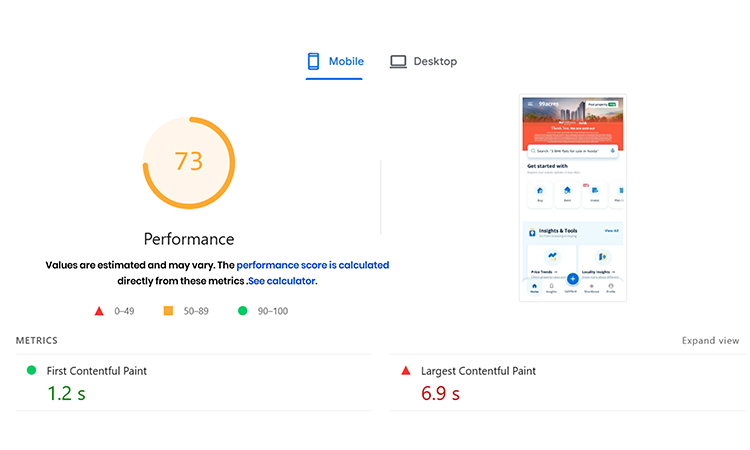
- Property Search Functionality
Make sure your search tool is user-friendly and powerful. It’s advisable to include advanced filters including;
- Square footage
- Number of bathrooms/bedrooms
- Price range
- Amenities, and more.
Your website should facilitate users to save their searches or also market listings as their favorites. You can enable email alerts for various new listings that match their prefrences, it’s a proven technique when it comes to re-engaging visitors.
- Clear Calls-to-Action (CTAs)
CTAs are necessary to encourage users to take action and thus maximize conversion. So, it’s advisable to use fully actionable and clear buttons including “Request More Details” “Schedule a Consultation” or “Get Brochures Now”. You need to place CTAs properly for various strategic spots including navigation bars, near listings, or also even within the content to boost visibility.
- Lead Capture Forms
Forms are indeed crucial to converting visitors into leads properly. It’s important to keep your form simple and short to encourage more visitors to fill it. Your form should include only boxes for necessary details like email, name, phone, and more.
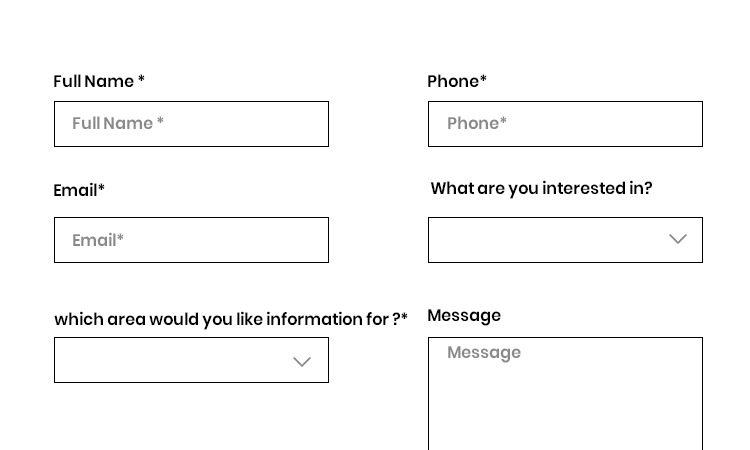
You need to get details about the easiest way to fill out, and the higher submission rate. These forms should have the capability of integrating smoothly with your CRM when it comes to managing leads with higher efficiency.
- Personalization and Nurturing
Personalization always works to attract users. It helps you improve engagement by recommending similar properties according to the browsing history of visitors. You can leverage chatbots to answer FAQs, real-time assistance, or also help in booking appointments.
It’s vital to integrate your website with email marketing platforms for sending newsletters, automated follow-ups, listing updates, and more. It helps you convert even one-time visitors into permanent clients.
Examples of Good Real Estate Website Design
Now, we will discuss some of the top examples of real estate websites that have marvelous designs. Let’s have a detailed look;
- Dawn McKenna
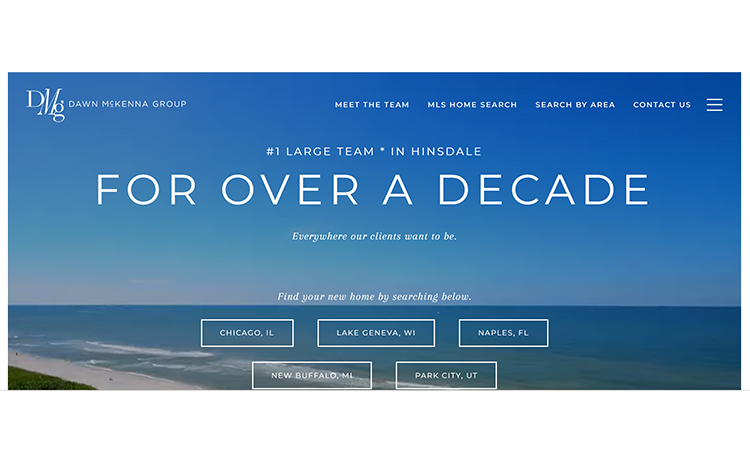
Dawn McKenna is another real estate website that is appealing to target customers. Be it the white and gray color scheme, dramatic visuals, Montserrat font, or chef’s kitchen with double oven and other appliances, you can take a look at everything. These eye-catching elements are great and reflect a complete effect of a luxury home. In this, the target customer is certainly not a budget buyer.
- Compass
As a realtor, your marketing takes place in person at open houses, a brick-and-mortar office, and online. Make sure your real estate website should coordinate with all of your own marketing strategies. These provide a perfect brand experience.

Compass is a well-known real estate website that does it better. You need to use the Compass yard sign.
Now, you can check out its website. You will find consistency with the following elements;
- Same Black and white color scheme
- Same body font
- Geometric design
When it comes to your website, you can indeed take the same approach. You need to ensure anyone drives through your signs, stops by your office, recognizes the same elements, and visits your open houses.
Wrap Up
It’s crucial to have a perfectly designed website for your real estate business. You can boost user experience and drive lead generation by implementing various must-have features into your website. Easy navigation is one of those features that allows users to discover what they require on your website while reflecting your local expertise.
It helps you build both trust and reliability among your potential clients. You need to focus on its accessibility that enables users to access your website conveniently and also top-quality visuals. These help you reflect properties most effectively. Effective lead generation tools are necessary for increasing your business online. Get in touch with professional website design agency to start your projects.

